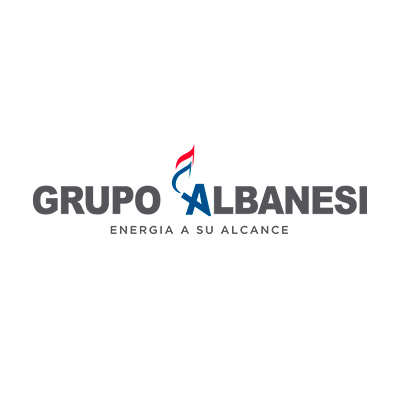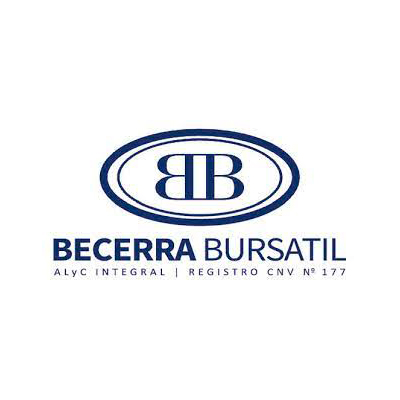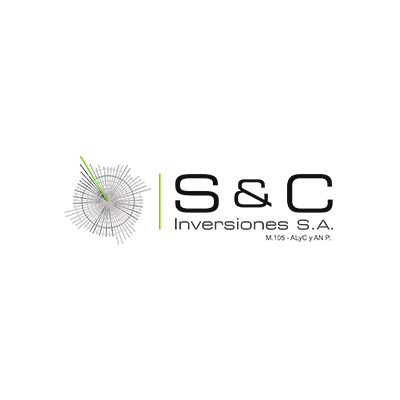National Tax Authority Establishes Procedures To Adhere and Obtain Certain Benefits Under the Large Investments Incentive Regime (RIGI)
On October 23, 2024, General Resolutions No. 5589 and 5590 were published, whereby the National Tax Authority (“AFIP”) established the procedures for obtaining certain benefits under the RIGI.
General Resolution (AFIP) No. 5590 foresees the procedures for Sole Purpose Investment Vehicles ("SPVs") to:
- Obtain a special Tax Identification Code (“CUIT”) to obtain RIGI benefits and register for taxes and/or regimes.
- Adhere to the special accelerated depreciation regime under the Income Tax (“IT”).
- Register import and export destinations.
- Apply special transfer pricing rules regarding operations with related parties located in Argentina.
- Issue invoices.
Meanwhile, General Resolution No. 5589 establishes the procedure for managing the issuance and use of Tax Credit Certificates for Value Added Tax ("VAT").
1. Obtaining a Special CUIT and Tax Registration
General Resolution (AFIP) No. 5590 stipulates that SPVs must obtain a special CUIT. The request for the special CUIT can be made once the Ministry of Economy issues the administrative act approving the adherence to the regime, using the web service called "Inscripción y Modificación de Personas Jurídicas – PJ WEB RIGI".
To obtain the CUIT, the responsible party—legal representative or authorized person—will access with their CUIT, CUIL (Labor Identification Code), or CDI (Identification Code) and their Tax Code enabled with Security Level 3 or higher, complete the required information related to the SPV (e.g., corporate name, date of incorporation, tax year-end month, corporate purpose, legal form, legal/fiscal address, and jurisdiction), and attach the administrative act provided by the Application Authority approving the SPV's adherence. Additionally, an electronic tax domicile must be established, and an administrator must be appointed in accordance with General Resolution (AFIP) No. 5048.
AFIP will have a non-extendable period of 10 business days from the receipt of the request to generate the special CUIT and will inform the assigned special CUIT to the Application Authority.
Additionally, the tax registration will be carried out through AFIP's website by accessing the "Sistema Registral" service, under the "Registro Tributario" or "Registro Único Tributario" service, as appropriate.
2. Adherence to the Accelerated Depreciation Regime in IT
SPVs must inform AFIP of their decision to opt for the accelerated depreciation regime. For this purpose, SPVs must use the "Presentaciones Digitales" web service and select the procedure called "Ley 27.742 - RIGI Amortización acelerada".
Please note that the option for the accelerated depreciation regime must be exercised for each asset involved in the project, prior to the deadline for filing the IT tax return in which said depreciation begins to apply.
3. Registration of Import and Export Destinations
Import Destination:
SPVs importing goods under RIGI must indicate in the import declaration, as a sworn statement, that the goods imported will be destined to integrate the projects for which they adhered to the RIGI and that they meet the requirements to apply the exemption provided by Article 190 of Law No. 27.742. For this purpose, the benefit "RIGI-VPU" must be selected.
Please note that Law No. 27.742 establishes an exemption of import duties, statistical and destination verification fees, and all perception, collection, advance payment, or withholding regimes of national and/or local taxes for imports of new capital goods, spare parts, components, and consumables, as well as temporary imports made by SPVs adhered to RIGI.
Moreover, it is established that suppliers importing goods under RIGI must indicate the same sworn statement mentioned above in the import declaration, selecting the benefit "RIGI-PROVEEDOR" and indicating the SPV to which the goods will be destined.
At the time of registering the import destination of new capital goods, spare parts, components, and consumables, the SPV or the supplier will provide a guarantee for those items that are exempt, which will remain in effect until the Application Authority instructs its release.
Note that the guarantee can be provided for performance or per operation, in accordance with General Resolution (AFIP) No. 3885 and its amendments.
Additionally, it is clarified that the SPV adhered to RIGI may transfer the goods to another SPV adhered to the RIGI, even during the destination verification period, without being required to pay taxes if the acquiring party assumes the obligation to adhere to the regime. The supplier adhered to RIGI may also transfer the goods during their useful life, with prior authorization from the Application Authority.
Moreover, during the useful life of goods imported under RIGI, the SPV or the supplier can request their release from the regime before the Application Authority. To do so, they must first self-liquidate the taxes that had been exempted due to the benefits provided by the regime.
Export Destination:
SPV’s exporting goods must indicate in the export declaration, as a sworn statement, that the goods were obtained under the project promoted by RIGI and that they comply with the requirements to apply the tax stability for customs duties provided in Article 204 of Law No. 27.742 and its regulation.
For this purpose, companies that have adhered to the RIGI as SPVs or Long-Term Strategic Export Projects, as applicable, and using the special CUITs generated, must declare the benefit "RIGI-BEN-EXPO" (RIGI-BENEFICIO 204 DE LA LEY N°27.742) in the export declarations for consumption of the products resulting from those projects, through which the option to perform self-liquidation will be enabled.
Please note that for determining customs duties, the tax regime, tax rate, and taxable base in effect at the time of the date of adherence to the RIGI will apply.
Finally, new regulations reiterate that SPVs will be exempt from export duties as of three years from the date of adherence to RIGI (or as of two years for SPVs owning projects declared Long-Term Strategic Export Projects).
4. Transactions Between SPVs and Local Related Parties – Special Transfer Pricing Regime
Additionally, General Resolution (AFIP) No. 5590 establishes a special transfer pricing regime applicable to transactions with related parties located in the country.
In this context, the regulation states that transactions or operations carried out by SPVs are subject to this transfer pricing regime when they are carried out with the following parties:
- Their members—entities forming Temporary Unions of Enterprises or other associative contracts—established or located in the country or those who qualify as tax residents according to IT law.
- Their owners, established or located in the country or those who qualify as tax residents according to IT law.
- Local related entities.
Note that transactions between the members, owners, and related entities of the SPV that do not involve the SPV itself are excluded from this regime. Operations conducted by the SPV with parties located abroad are also excluded, as they are subject to the general transfer pricing regime under the IT Law.
Lastly, it is established that SPVs must submit an "Annual Operations Report" for transactions carried out with related parties residing in the country by the sixth month following their tax year-end. The characteristics of this report are detailed in Annex VI of General Resolution (AFIP) No. 5590.
5. Invoicing
General Resolution (AFIP) No. 5590 establishes that, for the purpose of enabling the issuance of "A" class invoices, SPVs will be exempt from complying with the requirements established by paragraph c) of Article 3 of General Resolution (AFIP) No. 1575. Please note that these requirements include certain patrimonial verifications.
6. VAT Tax Credit Certificate – Implementation of the CERTIVA Web Service
Through General Resolution (AFIP) No. 5589, the CERTIVA Web Service (VAT Tax Credit Certificate) is implemented, allowing the issuance of VAT Tax Credit Certificates established under RIGI, as provided by Article 187 of Law No. 27.742.
Please note that said Article 187 provides that SPVs adhered to RIGI, which have been invoiced VAT (including the respective withholdings) for the purchase, construction, manufacture, processing, or final import of capital goods or for infrastructure works and/or services necessary for their development and construction, may pay the VAT (including withholdings) to their suppliers or to AFIP in the case of imports, through the delivery of Tax Credit Certificates.
Procedure for issuing Tax Credit Certificates
This procedure must be made through the web service "CERTIVA – Certificados de Crédito Fiscal IVA", selecting the regime under which the Tax Credit Certificates will be issued and choosing the option "Gestión de Certificados CERTIVA a Proveedores/Prestadores/Locadores."
One Tax Credit Certificate must be issued for each invoice or equivalent document received, to cancel the total amount of VAT invoiced and, if applicable, the applicable VAT collection.
Furthermore, the recipient of the Certificates may verify the eligibility of the beneficiaries authorized to issue them through the "CERTIVA – Certificados de Crédito Fiscal IVA" web service, where they can select the corresponding regime and choose the option "Consulta de Constancia de Beneficiario CERTIVA." They may also consult and/or accept the Certificates issued in their name, by selecting the options "Ver certificados recibidos" (view received certificates), "Ver certificados pendientes de aceptación" (view accepted certificates), or "Ver certificados pendientes de aceptación" (view pending certificates).
Procedure for using Tax Credit Certificates
To use the Tax Credit Certificates, the following steps must be followed: (i) expressly accept each Certificate by accessing the web service "CERTIVA – Certificados de Crédito Fiscal IVA" and (ii) inform AFIP of the invoice or equivalent document for which the Certificate was issued by recording it in the "Libro IVA Ventas" of the "Libro de IVA Digital", provided its expiration date has passed. If this occurs after the 15th of the month, the amounts of the accepted Certificates will be conditionally credited, and in the event of non-compliance, these Certificates will be automatically canceled.
In this regard, it is noted that the consolidation of the amounts of the Fiscal Credit Certificates will take place on the 15th of each month. Furthermore, for crediting the amounts of the Fiscal Credit Certificates, those issued until the 10th of each month, related to invoices or equivalent documents with an issuance date up to the last day of the previous month, will be considered.
Offsetting amounts originated from VAT withholdings and/or collections
The aforementioned Resolution establishes that the amounts originating from VAT withholdings and/or collections may be offset by using the amount of the Tax Credit Certificates in the month in which the obligation to make the payment arises:
- If the offset request is made before the crediting of the Certificate amount: taxpayer must access "Transacciones" menu of the "Sistema de Cuentas Tributarias", select "Compensación Regímenes Especiales", and choose the regime and tax period of the credit to be used.
- If the offset request is made after the crediting of the Certificate amount: taxpayer must access the "Transacciones" menu of the "Sistema de Cuentas Tributarias", select "Compensación", and choose the regime and tax period of the credit to be used.
Obligations will be considered cancelled at the time of the offset request.
Debt cancellation using Tax Credit Certificates
- The Tax Credit Certificate may be used to cancel debts for own taxes. To do this, the taxpayer must access the "Transacciones" menu of the system, select "Compensación", and choose the corresponding regime.
- It may also be used to cancel debts -on their behalf- related to social security contributions. To do this, the taxpayer must access the "Transacciones" menu of the system, select "Afectación Seguridad Social", and choose the corresponding regime.
- Additionally, the obligations arising from the liability for the fulfillment of third-party debt can be canceled using the amount of the Tax Credit Certificates. To do this, the responsible subject must access the "Transacciones" menu of the system, select "Compensación", and choose the corresponding regime.
Refund request
The supplier, service provider, and/or lessor of goods and/or services may request the refund of the Fiscal Credit Certificates’ amount when: (i) they have no enforceable debts with AFIP; (ii) they have fully complied with the filing of determinative and/or informative tax returns for non-prescribed fiscal periods.
To request the refund, they must access the "Transacciones" menu of the system, select "Solicitud de Devoluciones", and choose the regime and tax period for which the request is being made. The Resolution provides an administrative period of 15 business days to process the refund, and interest will accrue from the date the request was made.
Third-Party transfer request
Finally, it is possible to request the transfer of the Tax Credit Certificates’ amount credited in the "Sistema de Cuentas Tributarias" to third parties, provided that the same requisites mentioned above are met.
To request the transfer to third parties, the taxpayer must access the "Transacciones" menu of the system, select "Solicitud de Transferencia", and choose the regime and tax period for which the request is being made, and must also provide the information of the transferees.
The amount for which the transfer to third parties has been requested will not accrue interest in favor of the taxpayer.
The transferee must access the "Transacciones" menu of the "Sistema de Cuentas Tributarias", select "Aceptación de Transferencia SIR", and confirm, as appropriate, the acceptance or rejection of the transfer.
If accepted, the amount will be credited to the transferee's "Sistema de Cuentas Tributarias" and may only be applied by the transferee to cancel their own tax debts.
***
For additional information, please contact Gastón Miani, Leonel Zanotto, Micaela Aisenberg, or Solange Riesco.
Modifications to the Large Investments Incentive Regime and new implementation rules
The following regulations were published on October 22, 2024:
- Decree 940/2024 (“Decree 940”), which amends Decree 749/2024 (“Regulatory Decree”); and
- Resolution 1074/2024 of the Ministry of Economy (“Resolution 1074”), which approves the “Procedures for the Implementation of the Large Investments Incentive Regime” (“RIGI”).
The RIGI was created by Law 27,742 (“Foundations Law”) and regulated by the Regulatory Decree (see our comments on these regulations here and here).
1. Decree 940
Decree 940 amends certain aspects of the Regulatory Decree, such as:
- Capital goods destined to the realization of a RIGI Project are added as goods to be imported by suppliers adhered to the RIGI.
- The Single Project Vehicle (the “SPV” or Vehículo de Proyecto Único) may request the voluntary withdrawal of the RIGI provided that it has not been notified of an infringement procedure with a final resolution.
- The Tax for an Inclusive and Solidary Argentina (for its Spanish acronym, “Impuesto PAIS”) is suspended for the purchase of foreign currency destined to the payment of imports of capital goods made by the SPVs adhered to the RIGI.
2. Resolution 1074
Resolution 1074 establishes five procedures to adhere to the RIGI through the Trámites A Distancia (“TAD”) platform:
- Adhesion procedure for SPVs.
- Adhesion procedure for Strategic Long-Term Export Projects (“SLEP”).
- Adhesion procedure for the Expansion of Pre-existing Projects.
- Adhesion procedure for local suppliers; and
- Procedure to request a voluntary withdrawal of the RIGI.
3. Term for the resolution of applications
The term for the Ministry of Economy to approve or reject an application of adhesion or cancellation is forty-five (45) business days. This term may be suspended if additional information is required from other agencies or from the applicant.
In case of rejection, the applicant may submit a new application up to two additional times in the same calendar year.
4. Adhesion procedure
The adhesion procedure includes the following stages:
- Generation of an electronic docket with the Ministry of Economy.
- Preliminary analysis of the feasibility of the Project.
- Intervention of the Central Bank of Argentina and the Antitrust Agency, if necessary, which will temporarily suspend the procedure.
- Recommendation of the Evaluation Committee for the approval or rejection of the adhesion.
- Issuance of the Certificate of Adhesion to the RIGI for the approved Projects, allowing the SPVs to access the benefits and incentives.
5. Voluntary withdrawal
SPVs may withdrawal from the RIGI through the submission of a report explaining the reasons for their decision through the TAD platform.
***
For additional information, please contact Nicolás Eliaschev, Javier Constanzó, Daiana Perrone, Milagros Piñeiro, Victoria Barrueco and/or Giuliana Manzolido.
Municipality of Río Cuarto’s Series XXXVII Treasury Notes Issuance for AR$2,800,000,000








Legal counsel to the Municipality of Rio Cuarto, as issuer, Banco de la Provincia de Córdoba S.A. and Puente Hnos. S.A., as arrangers and placement agents, and Banco de Galicia y Buenos Aires S.A.U., Adcap Securities Argentina S.A., Banco de Servicios y Transacciones S.A., Facimex Valores S.A., and Global Valores S.A., as placement agents in the issuance of Municipality of Río Cuarto’s Series XXXVII Treasury Notes (the “Treasury Notes”), under the Municipality of Río Cuarto’s Treasury Notes Issuance Programme. The transaction closed on October 10 , 2024, and the Treasury Notes are secured by the Municipality's credits for contributions levied on commercial, industrial and service companies’ activities, and subsidiarily by the resources derived from the Federal Co-participation Regime. The Treasury Notes were issued for AR$2,800,000,000 at an annual floating interest rate equivalent to Badlar plus 10,97%, due on July 10, 2025.
Exchange Offer and Consent Solicitation of Grupo Albanesi's Local Notes for US$ 325.8 million
 Legal counsel to Grupo Albanesi in the exchange offer and consent solicitation, launched on August 9, 2024, and closed on August 30, 2024, assisting Generación Mediterránea S.A. (“GEMSA”), Central Térmica Roca S.A. (“CTR”), and Albanesi Energía S.A. (“AESA”), in one of the most significant exchange offers ever carried out in the Argentine capital markets, considering the number of instruments involved.
Legal counsel to Grupo Albanesi in the exchange offer and consent solicitation, launched on August 9, 2024, and closed on August 30, 2024, assisting Generación Mediterránea S.A. (“GEMSA”), Central Térmica Roca S.A. (“CTR”), and Albanesi Energía S.A. (“AESA”), in one of the most significant exchange offers ever carried out in the Argentine capital markets, considering the number of instruments involved.
As part of this transaction, US$ 325.8 million of the total principal amount of US$ 403.4 million, corresponding to 22 classes of notes maturing between 2024 and 2026, were voluntarily exchanged for 8 new classes of notes maturing between 2027 and 2028, representing an 81% acceptance rate.
Simultaneously, Grupo Albanesi obtained additional funding of US$ 11,441,687 through the cash subscription of the new notes.
Additionally, GEMSA-CTR and AESA, by means of collective action clauses, requested the consent of the holders of their existing notes to modify certain terms and conditions of those notes, including interest rates and payment dates, so that they would be aligned with the terms and conditions of the new issuances.
Caja de Valores acted as the exchange and consent solicitation agent.
As a result of the transaction, GEMSA and CTR co-issued the following notes under their Global Notes Program (non-convertible into shares) for a total nominal value of up to US$ 1,000,000,000 (or its equivalent in other currencies or units of measure or value):
- Class XXXV HD Bullet Notes at a fixed interest rate of 9.75%, maturing on August 28, 2027, for a nominal value of US$ 52,379,003.
- Class XXXVI DL Bullet Notes with a step-up fixed interest rate of 6.75%, maturing on August 28, 2027, for a nominal value of US$ 65,120,032.
- Class XXXVII DL Amortizing Notes with a step-up fixed interest rate of 6.75%, maturing on August 28, 2028, for a nominal value of US$ 71,337,585.
- Class XXXVIII UVA Bullet Notes at a fixed annual nominal interest rate of 4.00%, maturing on August 30, 2027, for a nominal value of 21,765,631 UVAs.
On the other hand, AESA issued the following notes under its Global Notes Program (non-convertible into shares) for a total nominal value of up to US$ 250,000,000 (or its equivalent in other currencies or units of measure or value):
- Class XV HD Bullet Notes at a fixed interest rate of 9.75%, maturing on August 28, 2027, for a nominal value of US$ 17,749,189.
- Class XVI DL Bullet Notes with a step-up fixed interest rate of 6.75%, maturing on August 28, 2027, for a nominal value of US$ 42,028,280.
- Class XVII DL Amortizing Notes with a step-up fixed interest rate of 6.75%, maturing on August 28, 2028, for a nominal value of US$ 44,788,040.
- Class XVIII UVA Bullet Notes at a fixed annual nominal interest rate of 4.00%, maturing on August 30, 2027, for a nominal value of 24,670,554 UVAs.
Banco de Servicios y Transacciones S.A., Balanz Capital Valores S.A.U., and SBS Capital S.A. acted as Arrangers, with Banco de Servicios y Transacciones S.A. serving as the Settlement Agent.
The Placement Agents included SBS Trading S.A., Banco de Servicios y Transacciones S.A., Balanz Capital Valores S.A.U., Facimex Valores S.A., Puente Hnos S.A., Banco Supervielle S.A., Banco Hipotecario S.A., BACS Banco de Crédito y Securitización S.A., Invertir en Bolsa S.A., Invertironline S.A.U., Banco de la Provincia de Buenos Aires, Bull Market Brokers S.A., Banco Santander Argentina S.A., Allaria S.A., Global Valores S.A., Macro Securities S.A.U., Becerra Bursátil S.A., Adcap Securities Argentina S.A., GMA Capital S.A., GMC Valores S.A., Inviu S.A.U., TPCG Valores S.A.U., Petrini Valores S.A.U., Consultatio Investments S.A., Latin Securities S.A., Neix S.A., Buenos Aires Valores S.A., Nación Bursátil S.A., and PP Inversiones S.A.
Municipality of Cordoba’s Treasury Bonds 2024 Series I Issuance for AR$ 40,000,000,000

















Legal counsel to the Municipality of Córdoba, as issuer, Banco de la Provincia de Córdoba S.A., as arranger and placement, and to Banco Santander Argentina S.A., Banco Comafi S.A., Banco Hipotecario S.A., Banco de Servicios y Transacciones S.A., Puente Hnos. S.A., Banco de Galicia y Buenos Aires S.A.U., Macro Securities S.A., Banco Patagonia S.A., SBS Trading S.A., Adcap Securities Argentina S.A., Facimex Valores S.A., Petrini Valores S.A., Becerra Bursátil S.A., S&C Inversiones S.A., and Banco de la Ciudad de Buenos Aires as placement agents, in the issuance of Municipality of Cordoba’s Treasury Bonds 2024 Series I (the “Treasury Bonds 2024 Series I”), under the Municipality of Cordoba’s Treasury Bonsds Issuance Program. The payments due under the Treasury Bonds 2024 Series I are secured by certain rights of the Municipality to collect certain contribution charges over the commercial, industrial and services activity. The Treasury Bonds 2024 Series I were issued on September 9, 2024, for AR$ 40,000,000,000 at an annual floating interest rate equivalent to Badlar plus 7.00%, due on September 9, 2026.
Legal Advice in Petrolera Aconcagua Energía S.A.’s Class XIV Notes Issuance


Counsel in the issuance of Petrolera Aconcagua Energía S.A.’s Class XIV Notes, for AR$19,313,593,400 issued on September 4, 2024, and due September 4, 2025, under its US$ 500,000,000 Global Notes Program.
Banco de Servicios y Transacciones S.A., acted as arranger and placement agent of the Notes, and Banco Mariva S.A., Banco Supervielle S.A., Banco Santander Argentina S.A., Banco de Galicia y Buenos Aires S.A.U., SBS Trading S.A., Banco de la Provincia de Buenos Aires, Allaria S.A., Adcap Securities Argentina S.A., Columbus IB Valores S.A., Balanz Capital Valores S.A.U. and Puente Hnos. S.A. acted as placement agents of the Notes.
The Government of Argentina releases the implementation rules of the RIGI
On August 23, 2024, the Government of Argentina published Decree 749/2024 (“Decree 749”) which contains the implementation rules of the recent large-investment regime bill approved by Law 27,742 (for its Spanish acronym, “RIGI”) (for additional comments in connection with the RIGI and other aspects of the Foundations Law, please access here).
Further implementation rules from other governmental entities are to be published no later than 30 days following the publication of Decree 749.
The key takeaways of Decree 749 are summarized below:
1. Eligible Sole Purpose Vehicles
Existing sole Purpose Investment Vehicles (“SPVs”) may adhere to the RIGI. These include corporations (sociedades anónimas), sole proprietorships (sociedades anónimas unipersonales), Limited Liability Companies (sociedades de responsabilidad limitada), branches (sucursales), and joint ventures (uniones transitorias).
2. Minimum amount of investment
The Minimum Investment Amount (the “Minimum Amount”) remains at two hundred million United States dollars (US$ 200,000,000) (net of VAT) for most of the RIGI sectors, including Preexisting Projects subject to an Expansion (as such terms are defined below).
As to oil and gas transportation and storage, the Minimum Amount is set at three hundred million United States dollars (US$ 300,000,000). For offshore oil and gas exploration and production, and gas exports, the amount is set at six hundred million United States dollars (USD 600,000,000).
Finally, for Strategic Long-Term Export Projects (“SLEP”) the Minimum Amount is raised from one billion united states dollars (US$ 1,000,000,000) to two billion United States dollars (US$ 2,000,000,000).
3. Expansion of Preexisting Projects
Decree 749 defines an “Expansion” as the group of investments in qualifying assets that will result in the increase of the productive capacity of a project adhered to the RIGI, or a Preexisting Project (not adhered to the RIGI).
In this way, Preexisting Projects that comply with the requirements set by the RIGI, e.g., the Minimum Amount, may be eligible to adhere to the RIGI, but the benefits provided by the RIGI will solely apply to the Expansion (i.e., not to the Preexisting Project).
4. Qualifying Assets
Investments made before to the enactment of the RIGI in qualifying assets (including, in this definition, mining, oil & gas concessions, real estate, etc.) are not eligible for purposes of the Minimum Investment Amount, as Decree 749 further clarifies that only those made following the approval of the RIGI may be considered as Qualifying Assets.
5. Essential services
Decree 749 states that essential services, accountable up to 20% of the Minimum Amount, are defined as those without the RIGI project could not have been executed. Approval from the Enforcement Authority is required. Services provided by affiliates are excluded.
6. Strategic Long-Term Export Projects
To be considered as a SLEP project, Decree 749 further indicates that the following criteria must be met (apart from those provided in Decree 749 and in the RIGI):
- The SLEP will result in the international positioning of Argentina as a new long-term supplier in the global market.
- Each stage of the project shall involve a minimum investment amount of one billion United States Dollars (US$ 1,000,000,000).
- 20% of two billion United States Dollars shall be investment in the first and second year of the SLEP’s term.
- The components associated to the SLEP shall be interconnected, within a maximum radius of 200 km, provided that such radius shall not apply if the components are located at a greater distance but are physically integrated.
7. Tax and Customs Incentives
7.1. Income Tax
7.1.1. Income Tax Rate
The Decree 749 stipulates that the benefit of the 25% rate established by Section 183 of the Foundations Law will apply over net income subject to tax derived from SPVs’ activity, as of the SPVs’ adherence to the RIGI.
7.1.2. Special Amortization Regime
SPVS may choose to apply the amortization regime foreseen in the Income Tax Law or the accelerated amortization mechanism specifically foreseen by Section 183 of the Foundations Law. The Decree 749 specifies that in case the SPV opts for the latter, it shall be applied to all assets, of the SPV, and the assets must remain in the SPVs’ possession until the end of its activity or their lifespan, whichever occurs earlier. If this requirement is not met, the SPVs must reinstate the amortization previously deducted in its tax balance, considering it as taxable income and applicable interests shall accrue. Once the option is exercised, it must be reported to the Enforcement Authority and to the tax authority, and the assigned lifespan of the depreciable assets must be reported annually.
7.1.3. Transfer of Tax losses
Tax losses incurred by the SPVs can be transferred to third parties under the conditions specified by Section 183 of the Foundations Law. Decree 749 states that such third will be able to apply the assigned tax losses in the fiscal period in which they are assigned, even if this occurs after the end of that period (but before the due date for filing the Income tax return). Further, tax losses can be carried forward for 5 years.
Transferred losses will be considered general losses of Argentine source for the recipient.
The transfer is subject to approval from AFIP, which must issue a resolution within 45 business days.
If the AFIP rejects the transfer for formal reasons, the taxpayer may amend the inconsistencies, and AFIP must thereafter issue a new resolution within the following 10 business days. The third subject will be exempt from any liability if AFIP challenges the transferred loss, and the claim will be directed to the original SPV that generated it (except in cases where the SPV qualifies as a sole purpose branch, and the deduction of tax losses has been done by the parent company).
7.1.4. Dividends
Dividends will be subject to tax at a 7% rate if distributed to individuals or undivided estates. Decree 749 provides that after 7 years from the end of the tax period of SPVs’ adherence to the RIGI, a reduced tax rate of 3.5% will apply, as it is specified by Section 185 of the Foundations Law, regardless of the income origin.
7.1.5. Payments from Strategic Long-term Export Projects to foreign beneficiaries
30% of the amounts paid will be presumed as net income (unless a more favorable treatment or exemption under current regulations applies) and the withholding tax must be applied.
7.1.6. Transactions between affiliates
Transactions or operations that an SPV performs with affiliates (either located within the country or abroad) will be subject to the Transfer Pricing rules established by the Income Tax Law.
The transactions or operations that an SPV carries out with their related parties located in the country and abroad will be subject to the Income Tax Law’s rules.
Conversely, with regards to entities residing in Argentina, they will be considered as affiliates in case that the following requirements, established by the Decree 749, are met:
- A subject holds all or most of the stock capital of another.
- Two or more subjects have a common entity holding all or most of their stock capital.
- A subject holds the necessary votes to form the corporate will or prevail in the shareholders' or partners' assembly of another subject.
- The members of a joint venture, or any other associative agreements or the entity that created sole purpose branches, or the foreign companies’ branches and resident subjects in Argentina are related as per the points above.
- There are agreements, circumstances, or situations granting the direction to a subject, whose participation in the stock capital is minor.
The AFIP must amend the Transfer Pricing regime foreseen by the Income Tax Law in order to make it applicable to transactions performed between SPVs and related parties which reside in Argentina.
Section 186 second paragraph of the Foundations Law states that to determine if the cost-sharing agreements signed between SPVS and their related parties are aligned with market practices between independent parties, the value of contributions or inputs made by each participant must be equivalent to what an independent company would accept under comparable circumstances. In this regard, Decree 749 stipulates that:
- A subject is considered to be a participant in the agreement if they have a reasonable expectation of benefiting from the result of that agreement.
- Contributions and expected benefits should be valued as if they had occurred between independent parties.
- This contributions valuation should be made without considering the benefits obtained within the RIGI framework.
- In specific cases, the AFIP may determine the correct valuation of the participations and benefits attributable to each participant and may also create an information regime over the operations of SPVs.
7.2. Value-added Tax (“VAT”)
The amount of VAT invoiced to SPVs for the purchase of fixed assets or infrastructure investments and/or necessary services for their development and construction, or the VAT for definitive imports, will be applied to a Tax Credit Certificate, without requiring the AFIP’s authorization.
The SPVs must report to the AFIP the certificates issued on a monthly basis, and, if the AFIP detects inconsistencies, VAT must be paid along with its applicable interests and fines, and it will be computable by SPVs as a VAT credit against VAT debits in the following period.
7.3. Tax Treatment of Joint Ventures or other associative contracts
Decree 749 states that these subjects will be able to adhere to the RIGI as SPVs if they are formed by independent companies that are duly registered in the relevant Public Registry and whose economic activity is orientated to third parties (e.g., projected to market).
7.4. Imports
7.4.1. Exemptions
Section 109 of the Foundations Law establishes that Imports of capital goods, spare parts, components, among others, carried out by SPVs will be exempted from import duties, certain fees (including destination verification), and any regime of collection, payments in advance or withholding of national and/or local taxes.
Decree 749 specifies that exemptions will apply to imports directly related to the approved investment plan and, for that purpose, at the time of approving the SPVs’ adherence to the RIGI, the following information must be provided to the Enforcement Authority:
- Details of the goods for which the incentive is requested.
- Identification of the adhering SPVs and the respective RIGI project to which the goods will be allocated.
- An affidavit certifying that the goods will be allocated to the RIGI project.
- Additionally, a guarantee must be posted as provided in Section 182 of the Foundations Law.
The goods will be subject to destination verification and must be allocated to the RIGI project until the end of the goods’ lifespan, the project or SPVS’ termination, the re-exportation of such goods, the payment of taxes that should have been paid if the benefit had not been granted, and/or the resolution of the Enforcement Authority.
The SPVs cannot change the declared destination of the goods, and they may only be transferred to another SPVs which has previously adhered to the RIGI, with the prior authorization of the AFIP.
7.5. Tax Treatment of Sole Purpose Branches
The taxpayer who creates the sole purpose branch may opt for:
- Transfer tax benefits proportionally to the value of the net worth transferred to the branch, as transferable losses of Income Tax and VAT balances. In this case, there are two alternatives:
- Allocate tax credits proportionally to the net worth transferred.
- Transfer tax credits directly obtained from the purchase or manufacture of the transferred asset.
- Transfer the assets, which will keep the same value that they had for the entity who creates the sole purpose branch, without transferring tax benefits.
7.6. Tax and Customs Stability
Section 201 of the Foundations Law established the tax and customs stability for SPVs, regarding the incentives mentioned above, which cannot be affected by the repeal of existing regulations or the creation of a more burdensome or restrictive new law. Additionally, the Decree stipulates that stability will apply to taxes, tax rates, and contributions payable by SPVs, as well as to rights, fees, or other charges on imports or exports. The SPVs may oppose the imposition of additional taxes or higher tax rates than those previously established, and also have the right to benefit from any elimination or exemption of taxes of the general tax regime, as well as from a possible reduction in tax rates.
Consequently, SPVs adhered to the RIGI will have the right, for a period of 30 years from the date of adherence, to pay exclusively:
- Taxes with the incentives offered by the RIGI; and
- Taxes not covered by the RIGI that were in effect at the time of their adherence, until they are eliminated from the general tax regime.
7.7. Tax for an Inclusive and Solidarity Argentina
The Decree establishes the suspension of the payment of this tax (as established by Section 35 of Law No. 27.541, subsection a), which applies to the purchase of foreign notes and currencies and other currency exchange transactions made by Argentine residents for the import of goods which are subject to the incentives mentioned in Section 190 of the Foundations Law.
8. Foreign Exchange Incentives
8.1. Collections from exports of goods and Start-Up Date
According to Section 198 of the Foundations Law, collections from exports of goods made by the SPV are exempted from the obligation to enter and settle foreign currency by a percentage equivalent to 20%, 40%, and 100% starting from the second, third, and fourth year, respectively, counted from the “Start-Up Date” of the SPV.
Decree 749 defines Start-Up Date as the date falling on the earlier of: (a) first export of the RIGI project; or (b) 40% of the Minimum Amount in qualifying assets is completed (net of accountable investments that can only be counted up to 15% and 20% according to Sections 38 and 39 of Decree 749).
The Start-Up Date must be reported by the SPV to the Enforcement Authority, specifically detailing the manner in which one of the two conditions outlined in the first paragraph has been fulfilled (e.g., the date of the first export, disbursement, the amount and eligible asset to which it was applied, etc.). This information will be forwarded by the Enforcement Authority to the Central Bank of Argentina (“BCRA”)
8.2. Incentive Percentage
Decree 749 also clarifies that the percentages indicated in the previous point will be calculated based on the amount received according to the agreed sales terms of the exported goods, shipped after the period corresponding to the Start-Up Date has elapsed.
8.3. Export Financing
Decree 749 provides that the incentives set forth for the export of goods (i.e., the possibility of not settling collections up to certain percentages) will be applicable to advances, pre-financing, and post-financing of exports, to the same extent that the incentive applies to the financed export.
8.4. Local Financing
Decree 749 clarifies that, for the purposes of the foreign exchange incentives under the RIGI, local financings in foreign currency shall include financial indebtedness with local financial institutions, issuance of securities in the local market, or promissory notes and other instruments approved by the BCRA.
8.5. Prepayment of Debt and Absence of Minimum Stay Period
Decree 749 establishes that access to the foreign exchange market by the SPV for the repayment of the principal of financial indebtedness with foreign creditors can occur at any time before the due date of the service, provided that such financing has been entered and settled through the foreign exchange market.
In the case of direct investments by non-residents, the SPV may access the foreign exchange market for the repatriation of the investment at any time, provided that the investment has been entered and settled, without the need to comply with any minimum stay period.
8.6. Limits for Accessing the Foreign Exchange Market
Decree 749 establishes that, as long as the provisions of the general foreign exchange market regime impose the obligation to enter and settle all or part of the proceeds from exports, the BCRA may require that the SPV only be allowed to access the foreign exchange market for any purpose to the extent that the total amount of foreign currency entered from abroad and settled in the foreign exchange market by the participating VPU is, at the time of each access, greater than or equal to the amount of foreign currency demanded by that date for the project, including the requested access.
It is also clarified that the above will not apply to the payment of interest on financial indebtedness and/or dividend payments.
8.7. Contributions in Kind and Commercial Debt
Investments by the SPV made through direct foreign investment contributions of capital goods in kind or the importation of capital goods financed by the supplier or another foreign creditor with direct disbursement to the supplier will receive the same benefits as those entered and settled, provided that such investments have been duly registered following the procedures established by the Enforcement Authority and/or the BCRA.
8.8. Partial Entry and Settlement
In cases where the SPV has partially entered through the foreign exchange market amounts corresponding to capital contributions or other direct investments, or loans or other financial indebtedness with foreign creditors, access to the foreign exchange market for the payment of profits, dividends, or interest to non-resident entities may not exceed the proportional part of the capital contributions or other direct investments, and the loans or other financial indebtedness with foreign creditors that have been entered and settled through the foreign exchange market.
8.9. Collections in Pesos by Foreign Creditors
Non-resident creditors of the SPV, including related parties, who have received pesos in Argentina as a result of a collection against the SPV due to a breach by the SPV (e.g., in the case of the enforcement of collateral), as well as guarantors of the SPVs obligations -including related parties- whose collateral is expressly established in the debt agreements for the payment of said granted collateral, will have access to the foreign exchange market for the repayment of principal and interest under the same terms and conditions that would have applied to the SPV.
8.10. Collateral for Foreign Creditors
Decree 749 establishes that the BCRA may: (i) approve mechanisms for accessing the foreign exchange market to allow the SPV to establish collateral in Argentina or abroad for the payment of principal and interest on foreign indebtedness that has been entered and settled through the foreign exchange market; and (ii) allow to accumulate collections from exports of goods and services in accounts within the country or abroad for the purpose of securing the repayment of such indebtedness, for example, onshore and offshore reserve accounts.
8.11. Impact on the Normal Development of the Project
Decree 749 sets forth that if a SPV adhering to the RIGI verifies that the normal development and execution of its project has been affected by actions or omissions of public bodies and/or private entities involved in administrative procedures related to compliance with the formal and/or substantive requirements and/or conditions established in the foreign exchange regulations, the SPV may notify the Enforcement Authority about the existence of such a situation with a detailed explanation of the case, providing any evidence in its possession, if any, and identifying the public bodies and/or private entities and their respective officials, agents, or employees involved, so that, if applicable, the Enforcement Authority can immediately take the necessary measures to restore the normal development and execution of the SPVs project adhering to the RIGI.
Such measures must be taken by the Enforcement Authority within five (5) business days of receiving the SPVs notification, including sending a notice to all parties identified by the SPV requesting explanations regarding the reported situation. This is notwithstanding any administrative, civil, and criminal consequences that may arise from the situation reported by the SPV.
8.12. Additional Regulations by the BCRA
Within 30 calendar days of the publication of the Decree 749, the BCRA must issue the necessary complementary regulations to enable, with respect to foreign exchange regulations, the effective use of the rights recognized under the RIGI.
The aforementioned regulations will also address cases of contributions of goods by foreign entities and the mechanisms for handling collaterals for local and foreign financing, including the application of the SPVs own exports, up to the amount of foreign currency that the SPV has entered and settled through the foreign exchange market in relation to the foreign indebtedness, plus its interest.
8.13. Accumulation of Benefits
With respect to foreign exchange incentives, the benefits provided under the RIGI in this matter cannot be accumulated with the incentives of other existing or future promotional regimes, including, but not limited to, the following: (i) Decree No. 929/13; (ii) Decree No. 234/21; (iii) Decree No. 892/20; (iv) Decree No. 277/22; (v) Decree No. 679/22; and (vi) Decree No. 28/23, or any regulations that may replace them in the future.
9. Procedure to adhere to the RIGI
The filing of the application must contain the documentation required by the Decree 749, and shall be submitted to the Enforcement Authority, signed by the legal representative and notarized. The Enforcement Authority must issue its decision on the adherence of the SPV to the RIGI within forty-five (45) business days. If the Enforcement Authority decides to request additional information to analyze the feasibility of the project or to call the legal representative to a hearing, this term shall be suspended.
Once this term has been resumed, the Enforcement Authority shall issue a decision within the remaining days of the established term, or within the following fifteen (15) business days, the longer of the two. The lack of pronouncement shall not be interpreted as an acceptance.
In case of rejection of the application, an adjusted filing may be submitted up to two (2) times during the same calendar year in which the notification of the first rejection was received.
10. New Registries
Decree 749 creates the “Registry of Sole Purpose Vehicles”, the “Registry of Strategic Long-Term Export Projects”, and the “Registry of Suppliers of the Incentive Regime for Large Investments”.
11. Enforcement Authority
The Ministry of Economy is designated as the Enforcement Authority of the RIGI.
12. Jurisdiction and arbitration
The SPV may establish, together with the Enforcement Authority, at the time of the filing, the forms, procedures and other requirements to be observed to communicate the existence of a dispute. This notice shall be made to the Enforcement Authority with a copy to the Attorney General’s Office.
Likewise, the Decree 749 introduces the concept of “Arbitration Contract”. The SPV adhered to the RIGI must state in writing its acceptance that both the SPV and its partners or shareholders will resolve disputes through the mechanisms set forth in the Foundations Law. Once the adherence has been accepted, the Arbitration Contract will enter come into force as of the date of the administrative act approving the adherence request to the RIGI.
Also, the filing shall provide that the calculation of the compensation shall contemplate consequential damages and loss of profit, as well as the impact on the economic and financial balance of the project.
Exceptionally, the Enforcement Authority may propose to the National Executive, with the express consent of the SPV, specific dispute resolution mechanisms for the project.
***
For additional information, please contact Nicolás Eliaschev, Javier Constanzó, Julieta De Ruggiero, Francisco Molina Portela, Gastón Miani, or Leonel Zanotto.
Foundations Law: Renegotiation of Public Contracts
- Scope: Public works and concession contracts entered prior to the new administration taking office may be subject to renegotiation and/or termination.
- Procedure: The procedure may be initiated by the National Government or by request of the contractor. The renegotiation and/or termination must be approved by the National Executive Power, with the prior intervention of the Office of the Attorney General (“Procuración del Tesoro de la Nación”).
- General provisions: the Ministry of Economy shall establish the financial or economic guidelines to determine the renegotiation or termination of the contracts within thirty (30) business days after the release of Decree 713.
- Renegotiation provisions:
- The contractor shall waive to any claim arising from, or in connection with, consequential damages, loss of profit, unproductive expenses and possible economic damages of a similar nature, derived from the decrease in the rate of execution or suspension of the work or service due to an emergency situation. The contractor shall also waive any administrative and/or judicial claim in connection thereof.
- The contractor shall receive no compensation for the loss of profits for the works, goods or services which may be carved-out by the contract amendment.
- The renegotiation agreement shall establish the terms of payment of the amounts due to the contractor, if applicable.
- The rights and obligations of the parties arising from the renegotiation agreement shall guarantee the economic and financial balance of the contract.
***
For additional information, please contact Nicolás Eliaschev and/or Javier Constanzó.
Foundations Law: Regulation of Public Work Concessions, Infrastructure and Services
- Tenor of the concession: Concessions may be for a fixed or variable tenor, based on the required investment, operation and maintenance costs, debt services, among other factors.
- Enforcement Authority: Ministry of Economy.
- Public Services: Public service concessions or licenses will continue to be ruled by their regulatory frameworks, notwithstanding the application of this regime mutatis mutandis.
- Selection process: Concessions shall be awarded following a call for bids, locally and/or internationally.
- Budget earmarks: Budget earmarks are required, if government funds are required for the concession.
- Amendments to the Concession Contract – economic and financial balance: Unilateral modifications to the Concession Contract made by the grantor related to the execution of the project must be compensated to the concessionaire to maintain the economic and financial balance of the concession. Likewise, the renegotiation is allowed, having to prove, by means of technical reports, the convenience for the public interest and the due legal, economic and financial analysis of the execution of the contract to be renegotiated. The renegotiation shall be carried out within twelve (12) months from the date of economic and financial imbalance and may be extended by agreement of the parties.
- Unilateral termination of the contract: The unilateral termination of the contract for reasons of public interest must be declared by the National Executive Power, with the prior intervention of the Ministry of Economy.
- Dispute settlement: Disputes shall be resolved, primarily, through a technical panel. Arbitration is allowed as well.
***
For additional information, please contact Nicolás Eliaschev and/or Javier Constanzó.
Foundations Law: Private Initiative Regime
- Scope: The newly enacted Private Initiative Regime shall apply to public work contracts, public works, services and infrastructure concessions and PPP contracts.
- Enforcement authority: Ministry of Economy.
- Submission of Private Initiatives: Initiatives may be submitted (a) following a call for bids for projects considered to be of public interest; or (b) with no call for bids, in which case the promoter of the private initiative (the “Promoter”) shall provide substantiated reasons for the private initiative to be deemed as of public interest.
- Private Initiatives Information: The private initiatives shall detail the following information:
- Technical and financial background of the Promoter.
- Description of the project.
- Location, area of interest and related benefits.
- Estimated demand and associated annual growth rate.
- Analysis of the relevant legal aspects considering, among other factors, its area characteristics, implementation zone, and areas of interest.
- If applicable, a description of the works to be performed and/or services to be provided, with their technical analysis.
- Analysis of the technical, economic, and financial feasibility.
- Estimated CAPEX and OPEX.
- Analysis of the economic conditions associated to the contract, such as fees and tenor of the concession.
- Financing.
- Description of the most material risk factors related to the Private Initiative.
- Environmental impact studies.
The Privative Initiative shall be backstopped by a guarantee, in the form of an insurance bond or letter of credit, in a guaranteed amount equal to 0.5% of the estimated investment; provided, however, that this guarantee may not be required if the Promoter accredits that the guaranteed amount has been incurred in the preparation of the private initiative.
- Filing of the Private Initiative – Public Interest Declaration: The Enforcement Authority is enabled to request additional information or documentation, and shall have a term of sixty (60) days, extendable for the same term according to the complexity of the project, to prepare a non-binding report on the public interest and the eligibility of the proposal, considering its technical, economic and financial feasibility. If the Enforcement Authority considers that the proposal is as of public interest, it will submit the non-binding report to the National Executive Power, who will decide whether to grant such qualification or not, within a term of ninety (90) days, extendable for the same term according to the complexity of the project. If the initiative is rejected, the project Promoter will not be entitled to any compensation.
- Call for Bids: the call for bids shall be done within sixty (60) days following the declaration of public interest.
- Promoter’s Rights:
- The Promoter’s bid shall have priority with respect to other offers if the difference between each offer’s price is no greater than ten percent (10%). Tied parties shall have the right to improve their offers if the offered price’s difference is between ten (10%) and fifteen percent (15%).
- If the Promoter is not selected as the preferred bidder, the Promoter shall have the right to be reimbursed for the direct costs and expenses from the preferred bidder (such reimbursement will not exceed 1% of the bid, increasable to 3%).
- Assignment of rights to the private initiative is allowed for the benefit of the Promoter.
- Abrogation of Decree 966/2005: the prior Private Initiative Regime approved by Decree 966/2005 is abrogated.
***
For additional information, please contact Nicolás Eliaschev and/or Javier Constanzó.



